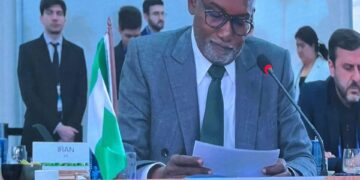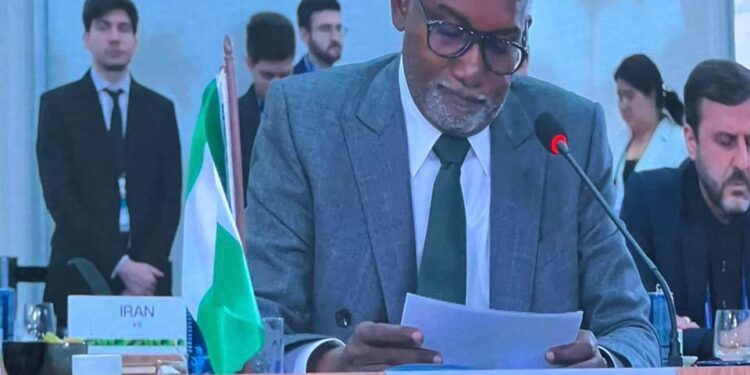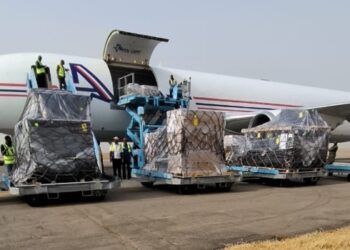By Ebi Kesiena
Nigeria’s Minister of Foreign Affairs, Ambassador Yusuf Tuggar, has called on BRICS nations to lead a transformative global agenda that addresses the twin challenges of climate change and health inequity.
Speaking on behalf of President Bola Tinubu and the Nigerian delegation, Amb. Tuggar delivered an address outlining Nigeria’s vision for a just transition and the need for urgent, unified action.
In a statement on Monday by Special Assistant on Media and Communications Strategy, Alkasim Abdulkadir, Amb. Tuggar emphasised that the health of the planet and the health of people from cities to rural communities are intrinsically linked and must be treated as such.
“The climate emergency heeds no borders. Just like global healthcare, we fix our own problems when we work together,” he stated.
Despite contributing minimally to global emissions, Africa is disproportionately affected by climate change, the Minister said. He cited examples from Nigeria, including deadly flooding in Mokwa, increasing desertification in the north, and rising sea levels in the Niger Delta, all of which are taking a toll on lives and livelihoods.
“Climate change is not a ‘tomorrow problem’ for Nigeria,” Tuggar noted, expressing condolences to victims of recent natural disasters. He called attention to Nigeria’s investments in renewable energy, including hydro and solar, and affirmed the country’s commitment to initiatives such as the African Carbon Market and the Great Green Wall.
He urged BRICS to increase climate financing support to developing nations, saying such assistance would enable the Global South to pursue ambitious climate targets while maintaining economic growth. “We believe COP30 must grasp the challenge of allowing the Global South to grow economically while safeguarding our collective responsibility to meet the challenge of climate change,” he said.
On global health, Tuggar warned that the inequities exposed by the COVID-19 pandemic demand a complete reinvention of global health systems. “Would so many children still die of malaria if this were a level playing field?” he asked. “COVID-19 was a tragedy, but also a warning.”
He reaffirmed Nigeria’s readiness to strengthen South-South health diplomacy through regional vaccine hubs, biotechnology and genomics research, and skills transfer. The goal, he said, is to prevent climate-induced health crises and ensure no child dies from a lack of access to routine healthcare.
Tuggar outlined Nigeria’s Long-Term Vision 2050, which seeks to integrate renewable energy, urban efficiency, and climate resilience into national planning. The plan includes reforestation and sustainable agriculture projects, as well as knowledge-sharing with countries in Africa, Asia, and Latin America.
“Nigeria has always met its obligations under the Paris Agreement,” he said, calling for deeper cooperation with BRICS to achieve Universal Health Coverage, climate justice, and greater pandemic preparedness.
However, closing his remarks, the Foreign Minister urged COP30 to rise above “sterile and toothless diplomacy”, arguing that BRICS is well positioned to offer a new framework for tackling old and emerging challenges. “Nigeria believes in solidarity, but we also recognise self-interest and nothing helps us help ourselves more than working together,” he concluded.



































